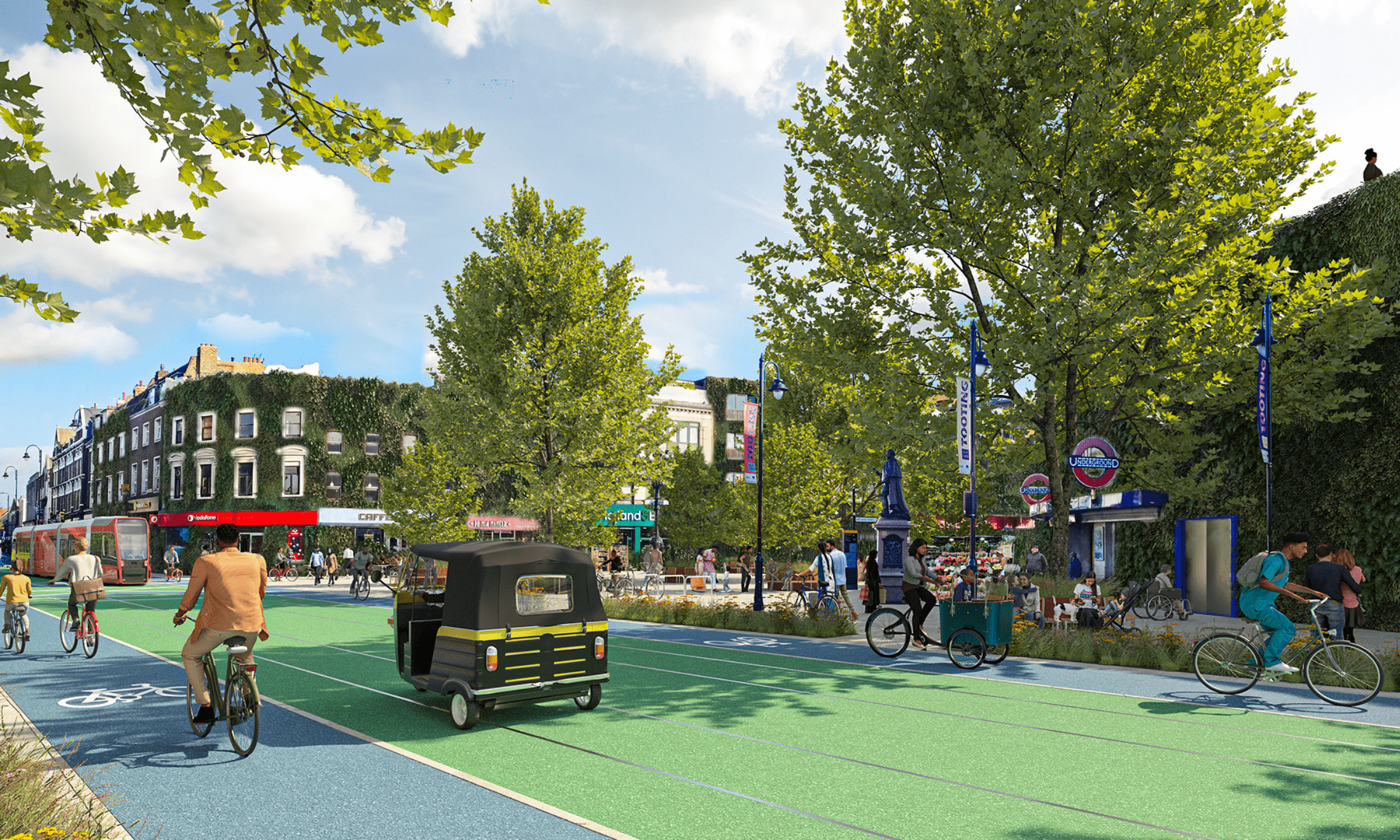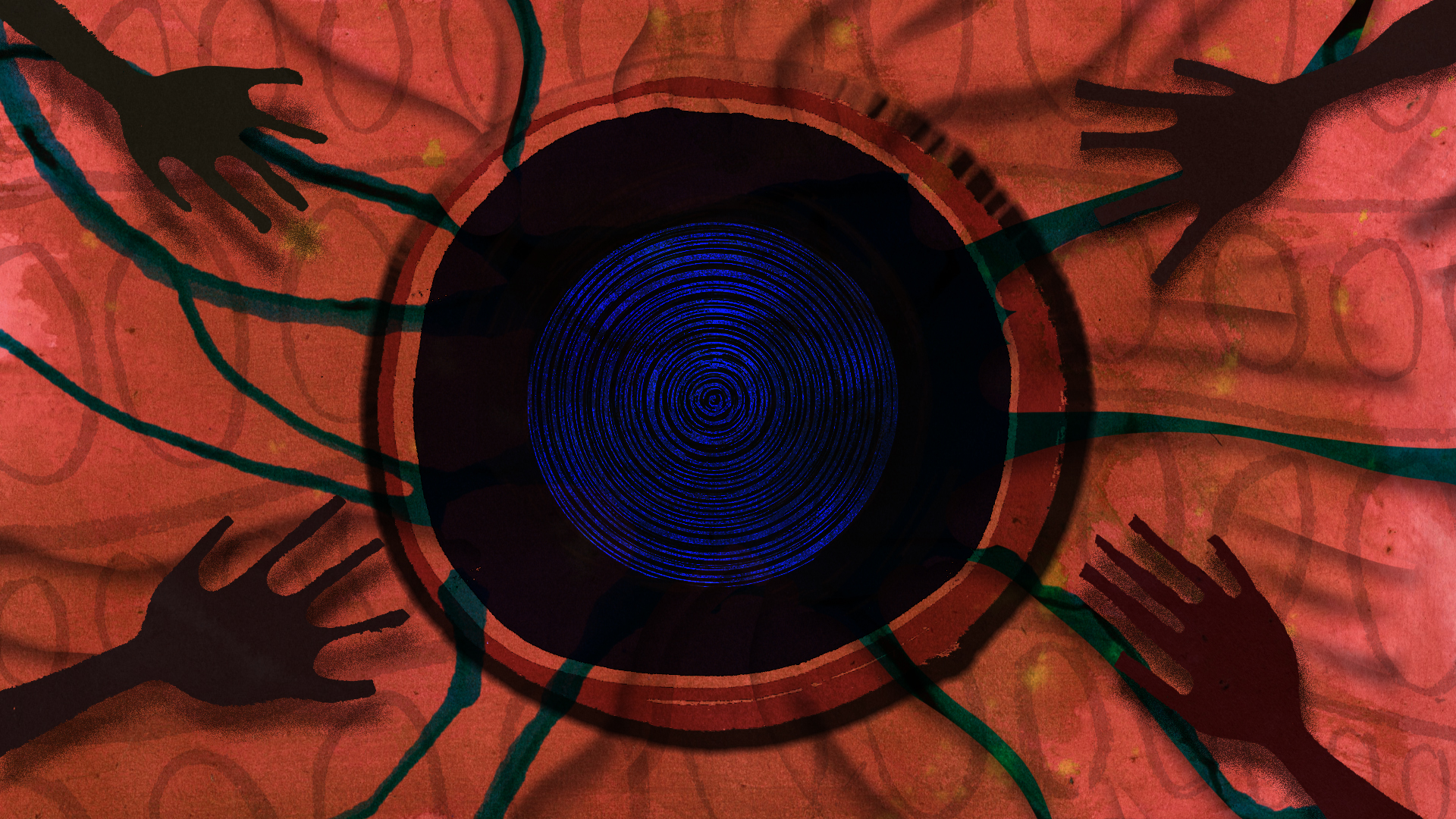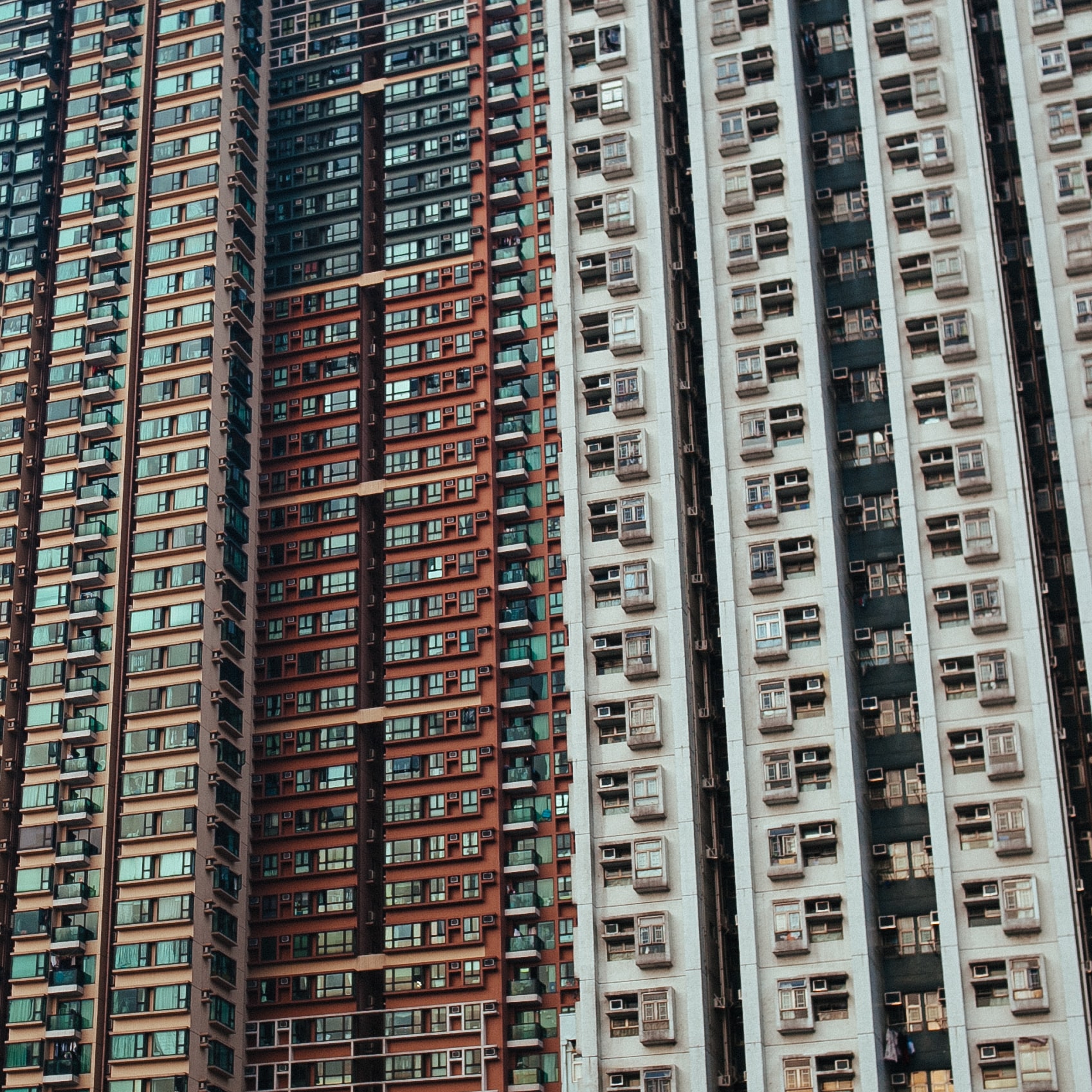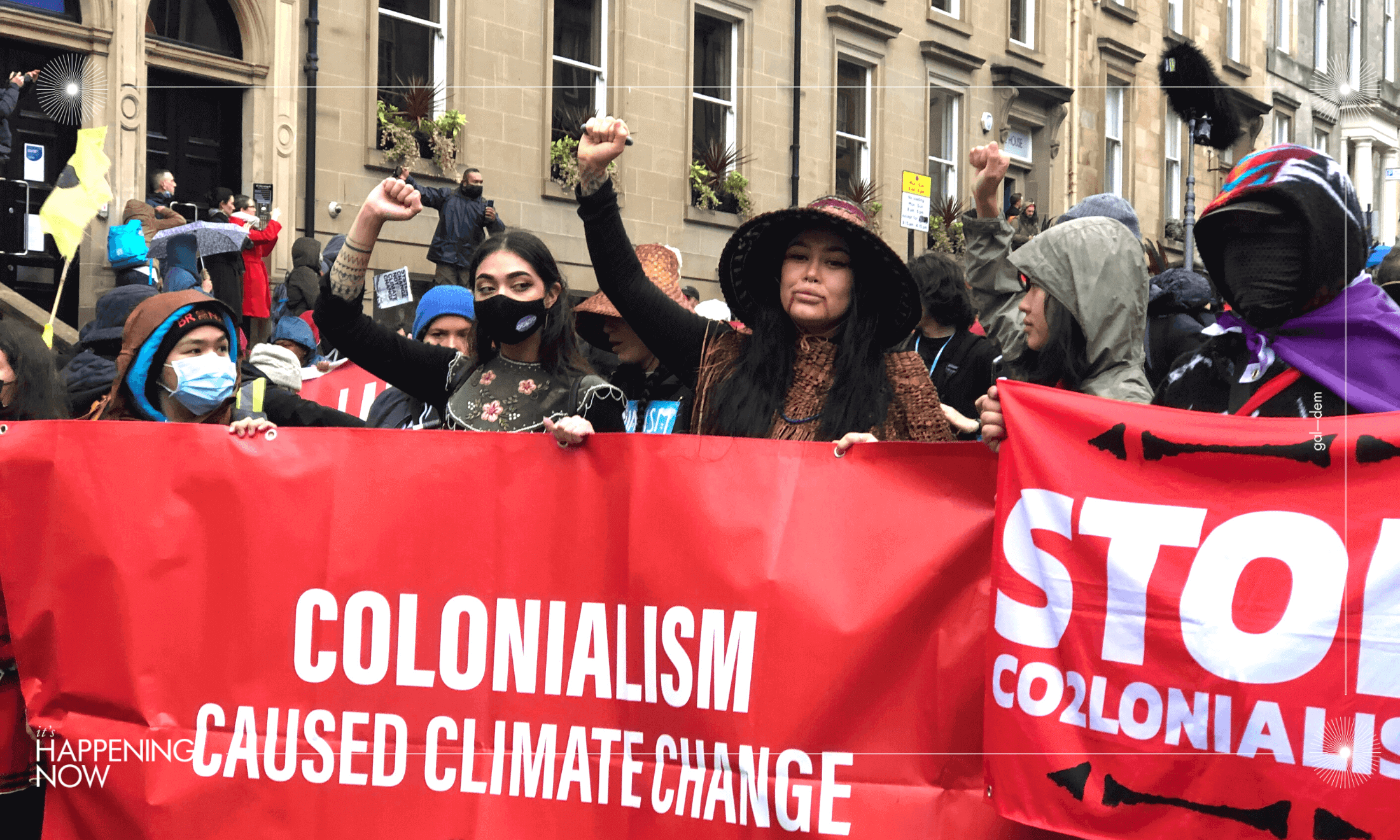
Diyora Shadijanova
‘We contribute the least and face the most effects’: the Global South leads Glasgow climate protest
Saturday 6 November saw climate demonstrations all around the world. We report from the action in Glasgow, host to this year’s crucial climate summit
DiyoraShadijanova and Editors
07 Nov 2021
At the bottom of West George Street in Glasgow, the crowd hears the thumping climate protesters before it sees them coming down the hill. Setting the tone for the demonstration, a white van with a banner that reads “climate justice without racial justice is the new colonialism”, blaring out ‘Kill The Police Bill’ by Ranking Ann, leads the way. A wall of people in hi-vis jackets link arms to protect the indigenous groups at the front of the march, while the Scottish and Palestinian flags fly high in unison. The sound of chanting, singing and drumming reverberates through the city, and cries of “DE-DE-DECOLONISE!” bounce off the tenements. In the city hosting COP26, the UN’s annual climate conference, rain pours down and a strong wind blows on the 200,000 people demanding climate justice. The scenes are emotional, uplifting and overwhelming.
Organisers estimate that around 300 demonstrations around the world took place for the Global Day of Action for Climate Justice on 6 November 2021. And despite the terrible weather across the country, over 100 of those were in the UK alone. At least for a moment, climate hope on this island feels like a tangible reality.
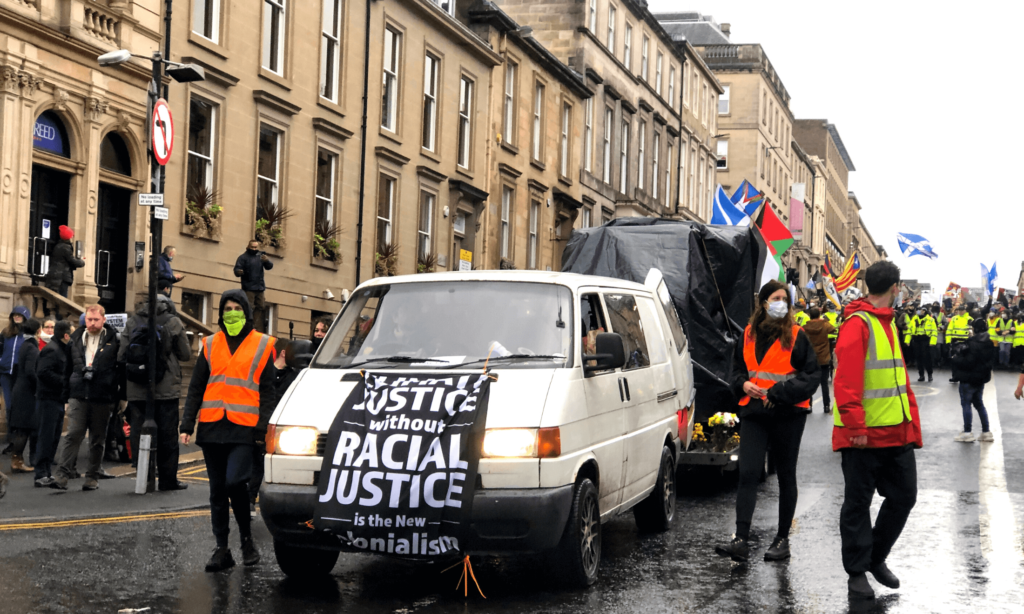
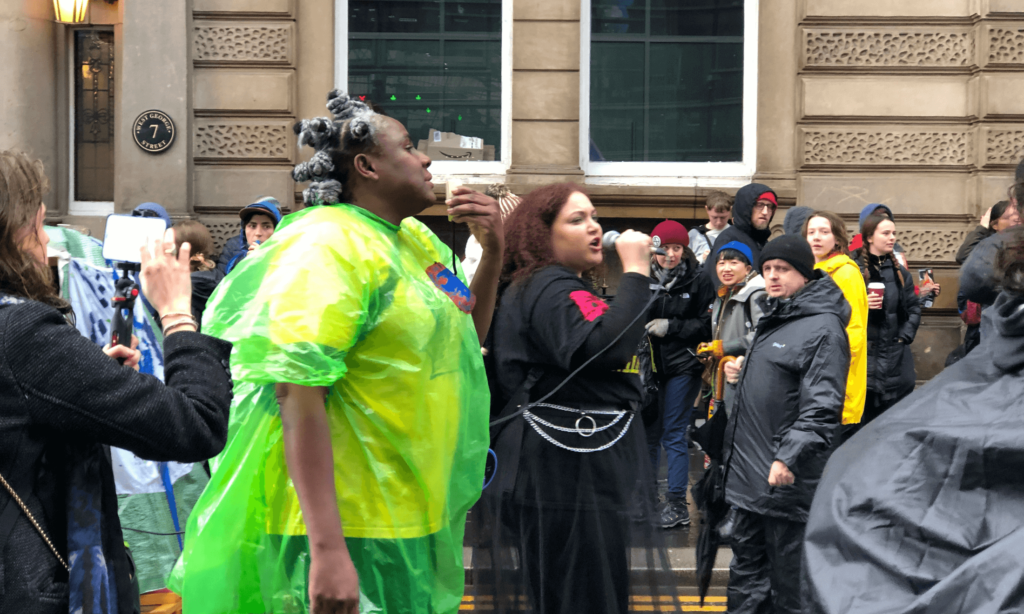
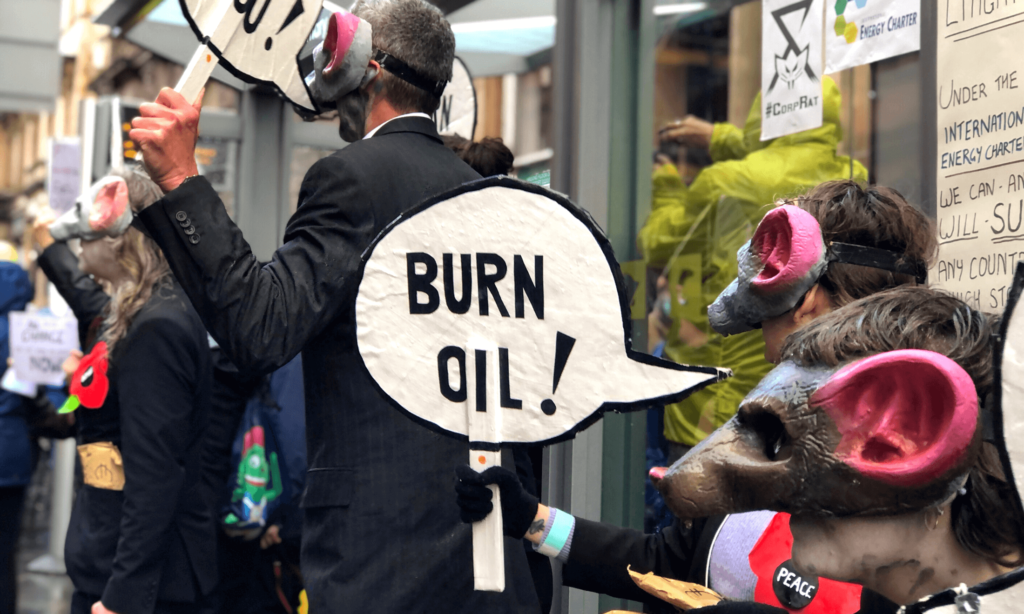
“I feel emotional, I feel empowered, I feel like there’s hope. There are so many people from different communities, it’s amazing to see everyone come together,” 24-year-old Aniqah tells me during the march. The Glaswegian hasn’t been impressed with the COP26 summit in the past few days, citing the hypocrisy of domestic flights and the obscene number of cars needed to accompany politicians for security reasons. Yet she’s delighted to be at the protest with Glasgow Climate Sisters and the Women’s Environmental Network – groups that are making sure that racial justice is at the centre of conversations around climate justice. “In the Global South, where its majority Black and brown people, we’re the one facing the brunt of climate change and dealing with disasters and human rights issues,” she explains.
“In the Global South, where its majority Black and brown people, we’re the one facing the brunt of climate change and dealing with disasters and human rights issues”
For 37-year-old Jennifer, who is striding the cobbled streets with a pole that has many different national flags attached to it, the day is all about championing justice for refugees. “With climate change, we’re going to have so many more refugees in the world,” she says. “Nations are already being affected by drought or [are being] submerged by water. So it’s crucial that our government policies are inclusive and represent diverse communities and welcome refugees and migrants.” The Edinburgh-based anti-racism charity worker has also brought along 10 young people of colour who are conscious of climate change. “We consume so much, and we’re causing so much damage to the planet. And it’s their generation that is really going to feel the brunt of it.”
As the protesters make their way down to Glasgow Green, where the procession ends and the rally starts at 3pm, I catch up with people of all ages in the crowd. Some, especially locals, are ecstatic about the high turnout, while others who have spent years campaigning on social issues seem visibly worried about the outcome of COP26. “Since 1995, they’ve been having these negotiations. It’s been 25 years of extracting from the Global South, and it’s 25 years of Shell and all these oil companies lobbying,” says Yvonne Blake, co-founder of Glasgow-based organisation MORE (Migrants Organising for Rights and Empowerment). She reiterates the need for solidarity in the face of the climate crisis: “The change won’t come from inside COP, the change comes from the people on the street.”
“The change won’t come from inside COP, the change comes from the people on the street”
At the Green, climate activists from across the globe make impassioned speeches to the energised crowd, with those from South American indigenous groups accompanied by translators. “We are not here to offer our indigenous solutions to your climate problem that colonialism created. We are not here to fix your COP agenda, we are here in spite of it,” Indigenous Canadian activist, Ta’Kaiya Blaney, declares. From the American Friends Service Committee, Peniel Ibe warns that people’s “houses are on fire” and that “we must choose capitalism or the pursuit of life with dignity.”
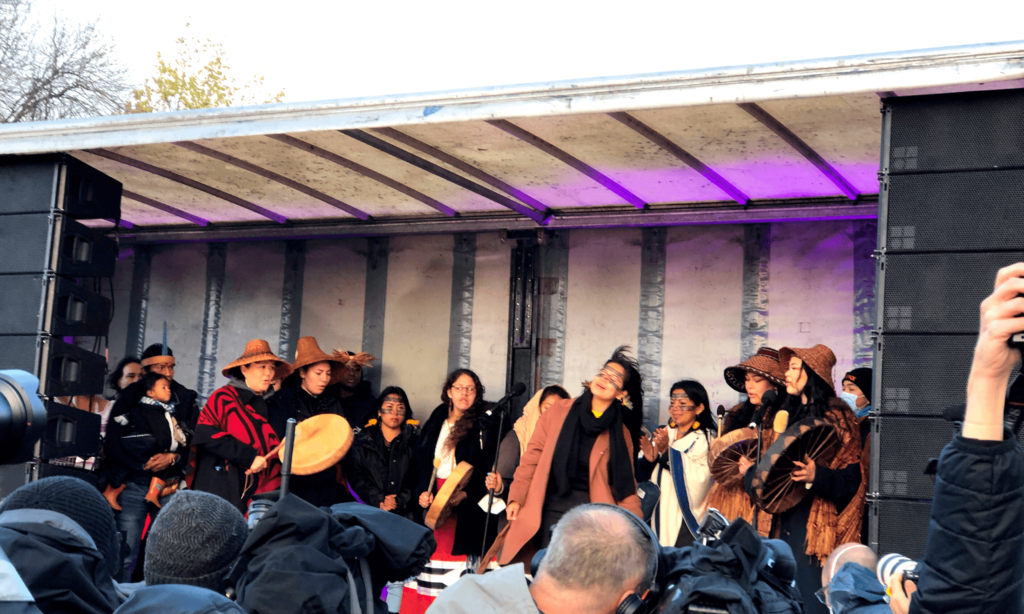
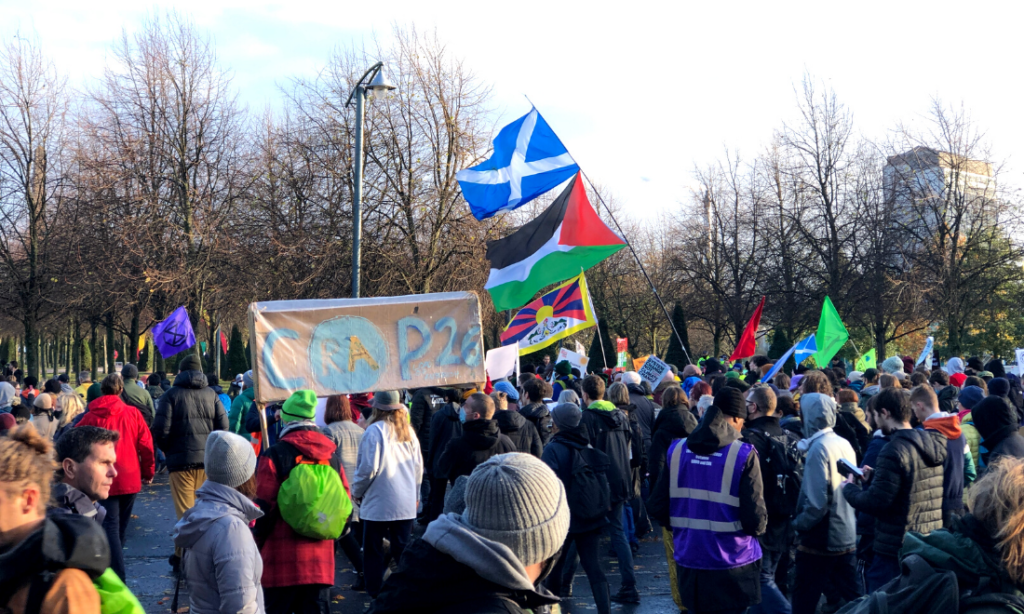
Backstage, I speak with Moemoana Schwenke from Samoa and Salome Matangi from Tuvalu and Samoa, who are both based in Sydney and part of the Pacific Climate Warriors. “We are here today to make sure that everybody knows that it has to be 1.5 [degrees] in order for us to stay alive,” Salome tells me. “We’re at the forefront of climate change. We contribute the least and we face the effects the most.” Moemoana says that despite the cold weather in Glasgow, she’s had her heart warmed by everyone at the protest. “We brought our dance moves with us. We brought our flags. It’s just always amazing being in the presence of our people, especially in a foreign country.”
At 5pm, as the skies darken and temperatures dip in the city, the rally winds down. There are reports that the police have kettled a group of anarchist protesters on St Vincent Street and have only released them on the conditions that they show their faces to police cameras and don’t reform as a bloc down to Glasgow Green. A pop-up food tent feeds hungry speakers, organisers and protesters before they pack up to go to the nearby pubs or their accommodations. The night is young. The day of action feels like a success, but amongst those in the climate crowd, low-lying tensions remain. ‘Will all this be enough?’ they wonder.
For too long, both climate activism and climate coverage have overlooked the voices and experiences of communities of colour. Follow our new series, It’s Happening Now, for stories that look to change that.

Britain’s policing was built on racism. Abolition is unavoidable

How Pakistan’s Khwaja Sira and transgender communities are fearing and fighting for their futures

Their anti-rape performance went viral globally. Now what?



